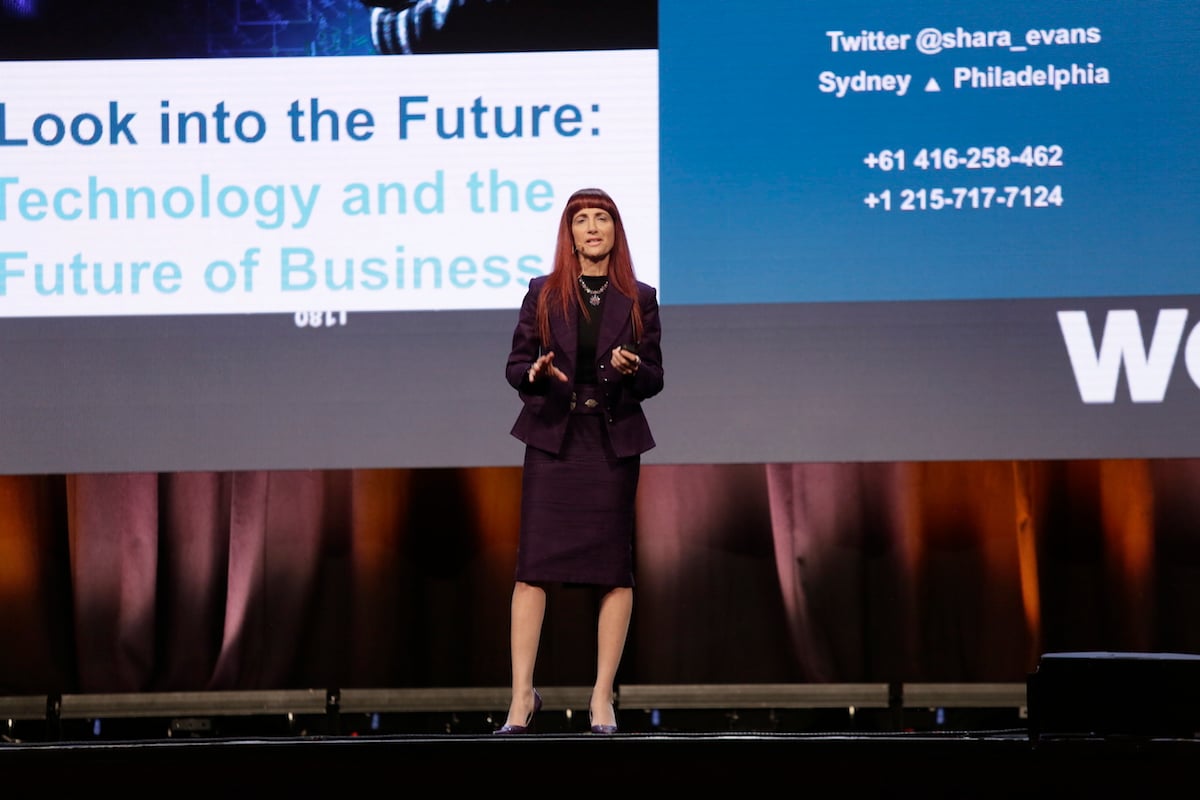With automation and artificial intelligence (AI) becoming more commonplace in business, there will soon become a need for Chief Ethics Officers to monitor how these technologies are being used.
Technology futurist and founder of technology analyst firm Market Clarity, Shara Evans, explains that when it comes to AI and machine learning in business, the bigger the neural networks, the more obtuse the machine becomes for the researchers who designed it. This happens so much so that the AI creators may not be able tell you why the AI made a particular decision.
“It’s going to be critically important as businesses employ machine learning, AI and deep learning in their organisation, that they’re able to take responsibility for the outputs of a system or systems that they deploy,” she says.
And this is where the Chief Ethics Officer comes in.
“Their role is going to be multi-task and it will be a C-level position – likely with a whole team of people with them,” Shara says. “One of the functions of this ethics officer is going to be having people look at the inputs and the outputs of AI systems to make sure that they are congruent with the company’s position ethically.”

Shara further discusses implementing automation and the ethical responsibilities this could have as well. She says automation is not about replacing a person with a machine, but rather how to have machines and people working together.
Ethics and automation
“In a lot of cases, when you have the potential to automate, you’re not talking about entire jobs, but parts of jobs,” Shara says. “You want to work with your staff to be able to figure out what repetitive, boring things you can let a machine do and ask how you can free up really valuable human capital to use their insights and knowledge about their area of expertise or vertical industry in a way that drives more value.”
Shara coins another job title she predicts will be introduced when it comes to automation – the Head of Human and Robot Orchestration.
“The Head of Human and Robot Orchestration has a lot of overlaps with the ethical side. You’re looking at the potential of displacing people’s jobs – let’s say an entire job skill that might go away – and there is an ethical responsibility and a corporate and social responsibility to start looking at how to retrain these very valuable people with skill sets that draw on their incredible knowledge and capital value. You need to help them thrive in this newer automated society.
“In doing so, we avoid this dystopian world where we end up with 30–50% unemployment because of people being displaced by machines.”
Shara believes there are a lot of new jobs that technology will enable – something that is backed up by her research – but “unless we actually train people to take advantage of those new jobs, we’ll have a really big disconnect”.
“Part of that new role of the Chief Ethics Officer is going to be making sure that their company acts in an ethical way towards every single staff member no matter what their role is,” Shara continues. “And to help them on their journey if that role isn’t a part of the company in the future.”
While most companies outside of the technology space are not very well prepared to take advantage of AI, Shara highlights two ways all businesses can prepare for the growing trend of technological change.
Two ways all businesses can prepare for the growing trend of technological change
-
Educate your executive level teams on what these new technologies are:
Look at they can be used in your particular vertical industry and start thinking about how they might impact your organisation. Will they be a threat, an opportunity or both?
-
Step outside your industry:
Look at other industries that may have nothing to do with yours to get ideas on how a completely different company and industry has dealt with digital disruption.
Shara Evans was a keynote speaker at the 2018 World Business Forum in Sydney. Here are our five favourite takeaways from the forum.







